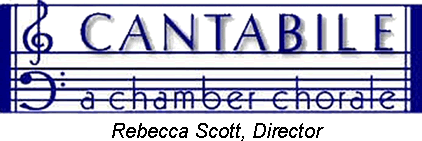Do we cherish the earth? Do we attempt to keep it green and thriving? Are we receiving the “just rewards” of neglecting it? We need hope. We need direction. We need courage. Are we willing to give up our own comfort so that everything and everyone will thrive? Can we be brave instead of afraid when we are surrounded aurally and visually by the noise of destruction, dissolution, depression, disillusionment and disaster? Can we instead fill our minds and ears with the music of the spheres? Many great artists have lived in poverty, ill health or depression amid dysfunctional societies. And yet they have created beautiful works that inspire and encourage us. So many in fact, that a myth has been generated about artists needing to suffer in order to create great art. In fact, artists create great art in spite of suffering. This fact alone can inspire us to be brave, appreciative and courageous in facing our own discomfort.
Blues Nocturne: Theme and Variation for Clarinet and Piano by Ruth Scott Clark
Ruth Elizabeth Scott Clark’s creative works of poetry, music and fine art have received many accolades. This piece won first prize for chamber music from the National League of American Pen Women chapter of which she was a member. Works now available through her website are: her poetry book, Ruminations of Ruth, two volumes of piano music, an Advanced Volume including this Blues Nocturne for Clarinet and Piano and other incidental instrumental pieces, a Student Piano Volume, twenty-four songs and several choral pieces (performed by Cantabile Chamber Chorale on several of their CDs). Mrs. Clark is Rebecca Scott’s mother and is still writing poetry at the age of 97 years young. www.ruthscottclark.com
As It Fell Upon a Day by Aaron Copland
Copland’s parents were Russian Jewish immigrants who had little interest in music. At the age of 20, he was accepted as the first American composer to study with Nadia Boulanger. Many followed in his footsteps. This song was originally an assignment by Boulanger for a piece for flute and clarinet. While working on this, he came upon a poem “Philomel” (“As It Fell upon a Day”) by Richard Barnefield (1574-1627) and decided to add a voice part to the assignment, having being affected by the “simplicity and tenderness” of the poem. Boulanger sent a copy to Universal Editions in Vienna for him, but they never received it. Otto Luening considered this one of Copland’s best pieces.
Irish, Scottish, Welsh and English Folksong arrangements for piano, violin, cello with various voice combinations by Ludwig van Beethoven
There are nearly 200 of these works. A 22-page manuscript in Beethoven’s own handwriting shows five arrangements for popular Scottish and Irish folk songs commissioned by Scottish publisher George Thomson. Beethoven wrote 126 settings for Thomson who wanted to popularize Scottish and Irish folk songs in 19th century drawing rooms. However, the arrangements produced by Beethoven were too complicated for drawing room performers. Beethoven and Thomson had disagreements but Beethoven refused to simplify the music and also argued about his pay.
Lochnagar was composed in Scottish Gaelic, Lachin Y Gair in 1807 by George Gordon Byron, Lord Byron, who lived on a farm near the Cairngorm mountains in Aberdeenshire until the age of 10. Lochnagar is a steep mountain ridge with four distinct peaks about a loch (lake) of the same name.
Sunset (or The Dreary Change) by Sir Walter Scott (1771-1832) The ninth son of an Edinburgh solicitor, he studied law at 21, becoming Clerk of Session. His literary efforts: historical romances, poems, dramas, biographies, essays, critical editions, translations and almost every form of literary product brought him fame only surpassed by Byron. He became rich, was made a Baron by King George IV and created an estate called Abbotsford on the river Tweed living the life of a county magnate and powerful businessman which ended sadly in financial ruin, illness and death at the age of 61. This poem, also translated as The Dreary Change was written as he, old and ill, gazed upon his beloved and familiar view from the hill above Cauldshiels Loch and without self-pity mused that it was just as wonderful as always, but that he himself had changed.I Dream’d I Lay Where Flowers Were Springing was composed in Scottish Dialect by Robert Burns who stated that “These two stanzas are among the oldest of the printed pieces I composed when I was seventeen.” ”Drumlie” means hitting like a drum or thundering; “lang” is “long about noon;” “A’” is all; “mony” is many.
To The Blackbird by Dafydd ap Gwilym (c.1315/1320-c.1350/1370) He is generally regarded as the greatest Welsh poet of all time and among the great poets of Europe in the Middle Ages. His main themes were nature and love. Many of his poems are addressed to women, particularly to two, Morfudd and Dyddgu, and about 170 of his poems have survived. He was an innovative poet but perhaps his greatest innovation was to express his own personal feelings and experiences, often erotic and revealing, which was something not done at that time. Dafydd was responsible for making popular the metre known as the cywydd and the first to use it for praise. The cywydd consists of a series of seven-syllable lines in rhyming couplets, with all lines written in cynghanedd. One of the lines must finish with a stressed syllable, while the other must finish with an unstressed syllable. Cynghanedd (harmony), in Welsh language poetry, is the basic concept of sound-arrangement within one line, using stress, alliteration and rhyme. The translation of this song from the Welsh was done by a Clergyman from Pentre, Wales, named Reverend Roberts.
The Sailor’s Song was composed by Joanna Baillie (1762-1851) for her drama Phantom. Her poetry ranged from songs and lyrical ballads to dramatic monologues and realistic blank verse poems relating to her youth in the Scottish countryside, as well as her life in London. Sir Walter Scott supported the production of her dramas in London. Baillie’s best poetry has been considered by some, the equal of and the “formative link” between Robert Burns’ Scottish poetry and William Wordsworth’s meditations on Nature. Glossary: “bairnies” – children; “Largo Bay” – a wide bay of the southern coastline of Fife, extending from Buckhaven and Methil in the west round to Kincraig Point in the east and to the south lies the Firth of Forth; “cot”- a suspended bed used by naval officers which doubles as a coffin if required; “eldritch”- a weird or horrifying thing.
O swiftly glides the bonny boat Just parted from the shore,
And to the fisher’s chorus note Soft moves the dipping oar.
His toils are borne with happy cheer And ever may they speed,
That feeble age and helpmate dear And tender bairnies* feed.
Refrain
We cast our lines in Largo Bay*, Our nets are floating wide,
Our bonny boat with yielding sway, Rocks lightly in the tide.
And happy prove our daily lot Upon the summer sea,
And blest on land our kindly Cot* Where all our treasures be.
The mermaid on her rock may sing, The witch may weave her charm.
Nor watersprite nor eldritch* thing The bonny boat can harm.
It safely bears its scaly store Thro many a storm gale,
While joyful shouts rise from the shore. Its homeward prow to hail.
Effervescence by Emma Lou Diemer, a native of Kansas City, MO, is a well established and esteemed American composer. She has written many works for orchestra, chamber ensemble, keyboard, voice, chorus (women’s, men’s) and electronic media. In 2006, Cantabile was fortunate to commission Ms. Diemer to compose a piece in memory of Cantabile Board member and alto Leila Eutermarks entitled In One of the Stars for SATB, guitar and piano. Effervescence was composed in 2007 to an excerpt from an essay by Flannery O’Connor (1925-1964) and is published by Kjos music.
Dodi li va’ani lo (My beloved is mine, and I am his) by Gerald Cohen was commissioned for Cantabile by Mitzi Lasky and Seth and Carolyn Rudnick in memory of their parents, Dr. Stanford and Lucille Batter Rudnick, and in celebration of Cantabile’s 20th anniversary season 2008-2009. It is the third piece that Dr. Cohen has written for us. Dr. Cohen writes, “The Song of Songs is a favorite text of both mine and Mitzy’s and is suitable as a tribute to the love of her parents for each other. I chose a selection of short texts from different parts of the poem, with the opening line as a refrain, and with each successive line becoming musically more and more caught up in the intoxication of love.”
Refrain: Refrain:
Dodi li, vaani lo, My beloved is mine and I am his,
haroeh bashoshanim. He browses among the lilies.
K’shoshana bein hachochim, Like a lily among thorns,
kein rayati bein habanot. So is my darling among the maidens.
K’tapuach baatsei hayaar, Like an apple tree among trees of the forest,
kein dodi bein habanim. So is my beloved among the youths.
(Refrain) (Refrain)
Hayoshevet baganim, O you who linger in the garden,
chaverim makshivim, A lover is listening,
l’koleich hashmiini! Let me hear your voice!
(Refrain) (Refrain)
Ichlu reiim, sh’tu v’shichru Eat, Lovers, drink, become
dodim! Intoxicated with love!
Saturday, March 28, 2009, at 7:30 PM
Christ United Methodist Church, 485 Hoes Lane, Piscataway, New Jersey
CANTABILE CHAMBER CHORALE
Rebecca Scott, Artistic Director
All in Green – Cherish Our Earth
Songs to Celebrate Our Home and Our Creator
Jeremiah Duarte Bills, flute Vasko Dukovski, clarinet
Lynne Stallworth, piano Dennis Dell, organ
and Cantabile Youth Singers and Players
Elizabeth Verderosa, Director
God is Gone Up . . . . . . . . . . . . . . . . . . . Gerald Finzi (1901-1956)
Schaffe in mir, Gott . . . . . . . . . . . . . Johannes Brahms (1833-1897)
Opus 29, no. 2
Whenever I hear the song of a bird. . Clara McMaster (1904-1997)
Duet: Sally and Jeff Duke Jeremiah Duarte Bills, flute
The Corn Song. . . . . . . . . . . . . . . . . Gustav von Holst (1874-1934)
Cantabile and Cantabile Youth Singers & Players
Creation (excerpts) . . . . . . . . . . . . . . . Joseph Haydn (1732-1809)
And God Said, With Verdure Clad
Sally Duke, soprano solo
And God Said, In Splendour Bright
Jerry Phillips, tenor solo
The Heavens are telling
Chorale with Trio: Gabriel-Gail Tilsner
Uriel-Michael Holloway Raphael-Ron Baughman
And God saw everything that He had made
Jeff Duke, bass solo
Achieved is the glorious work
Chorale
On thee each living soul awaits
Trio: Gabriel-Ruth Lanza Uriel-Larry Cohen Raphael-Jeff Duke
Achieved is the glorious work
Chorale
INTERMISSION (10 minutes)
Conversation between Two Drivers . . . . . . . . . . . . . . . . . ANON
Cantabile Tenors
Give us This Day. . . . . . . . . . . . . . . . . . . . Ward Swingle (b.1927)
Blues Nocturne: Theme & Variation. . . Ruth Scott Clark (b.1912)
Vasko Dukovski, clarinet Lynne Stallworth, piano
As it Fell Upon a Day . . . . . . . . . . . . . Aaron Copland (1900-1990)
Judith Johnston, soprano
Jeremiah Duarte Bills, flute Vasko Dukovski, clarinet
Folksong arrangements . . . . . Ludwig van Beethoven (1770-1827)
Scottish: Lochnagar
Trio: Ruth Lanza, Jerry Phillips, Jeff Cartwright-Smith
Scottish: Sunset
Duet: Tammy Guarderas, Michael Holloway
Irish: I dream’d I lay where flowers were
Duet: Gail Tilsner, Nancy Engel
Welsh: To the Blackbird
Quartet: Nancy Engle, Tammy Guarderas, Ruth Lanza
William Tinnel, Michael Holloway
Scottish: O swiftly glides the bonny boat
Opus 108, No19, 1815
R. Lanza, T. Guarderas, G. Tilsner, N. Engel, A. Gould, M. Holloway
J. Phillips, L. Cohen, J. Cartwright-Smith, J. Duke, W. Tinnel, R. Baughman
Effervescence . . . . . . . . . . . . . . . . . . . Emma Lou Diemer (b.1927)
Dodi Li va’ani lo . . . . . . . . . . . . . . . . . . . . Gerald Cohen (b.1960)
Vasko Dukovski, Clarinet
World Première Commission
***



